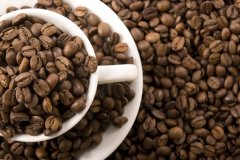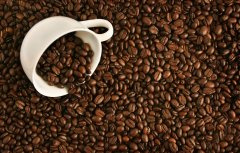Tasting espresso
The world consumes more than 400 billion cups of coffee every year. There is no doubt that coffee has become one of the most popular drinks in the world. There are many types of coffee with different styles and methods, but the same thing is that every good cup of coffee can be a pleasant experience, while bad coffee can only spoil the mood. You only need to take a sip to realize the difference in quality. So, how can we tell whether a cup of coffee is good or bad?

Capacity: espresso is distilled from coffee powder, the best capacity is about 30ml, and filled in a white porcelain cone cup. Too large a cup will speed up the cooling of the coffee. The lower the distillation volume, the higher the concentration; if the distillation volume is too much, the purity becomes lighter and the taste is closer to the American coffee.
Appearance: the reddish brown foam on the surface of espresso is also known as coffee oil, and this layer of oil can explain the quality of coffee to a large extent. The foam of high-quality coffee should be thick, smooth, shiny and full of aroma of coffee oil. Foam color should not be too dark or too light, light color means that hot water and coffee powder contact speed is too fast, lack of flavor concentration; too dark brown indicates that the speed is too slow, will increase the bitterness of coffee. The thickness of the fat should fully cover the lower layer of coffee, the texture is thick, tight, and can be pushed with a coffee spoon.
The smell of success: a truly high-quality Italian concentrate has an extremely attractive aroma. You can smell the sweet and sour taste of fresh fruit, slightly bitter, and sometimes a little spicy and woody aromas. On the other hand, old, low-quality or pre-ground coffee beans will only lead to a lack of aroma of the finished coffee.
Temperature: for espresso distilled, the temperature should be 75-80 ℃; coffee cups for bottling should be preheated to 35-40 ℃. If the distillation temperature is too high, the coffee oil is charred and the coffee tastes bitter; if the temperature is too low, the aroma can not be fully released. Espresso should be finished within 2 minutes of distillation.
Taste: the ultimate test is, of course, tasting. Italian concentrate has a strong aroma with fruity aromas, a rich palate like melted chocolate and a long finish. Only based on this high-quality Italian concentrate will you be able to better choose other coffee flavors you like.
Important Notice :
前街咖啡 FrontStreet Coffee has moved to new addredd:
FrontStreet Coffee Address: 315,Donghua East Road,GuangZhou
Tel:020 38364473
- Prev

The coffee powder is out of date, what should I do?
When you unwittingly clean up your room and find some coffee powder that you forgot before, it's a pity to lose it, and you can't eat it, what should you do? You can turn waste into treasure, it still has a lot of useful places. 1. It can be placed on the soil surface of potted plants, which can prevent the breeding of insects and can also be used as fertilizer. 2. Wrap the coffee grounds with gauze, wipe the stove and pot lid, and have a strong decontamination ability. 3. Use coffee powder with yarn
- Next

What's the advantage of drinking coffee? Who is not fit to drink coffee?
one。 What's the advantage of drinking coffee? Caffeine can stimulate the central nervous system and muscles, so it can cheer up, enhance thinking ability, and restore muscle fatigue. Acting on the cardiovascular system, it can improve heart function, dilate blood vessels and promote blood circulation. For the gastrointestinal system, it can help digestion and help decompose fat. 1. It helps you lose weight. Caffeine does.
Related
- Beginners will see the "Coffee pull flower" guide!
- What is the difference between ice blog purified milk and ordinary milk coffee?
- Why is the Philippines the largest producer of crops in Liberia?
- For coffee extraction, should the fine powder be retained?
- How does extracted espresso fill pressed powder? How much strength does it take to press the powder?
- How to make jasmine cold extract coffee? Is the jasmine + latte good?
- Will this little toy really make the coffee taste better? How does Lily Drip affect coffee extraction?
- Will the action of slapping the filter cup also affect coffee extraction?
- What's the difference between powder-to-water ratio and powder-to-liquid ratio?
- What is the Ethiopian local species? What does it have to do with Heirloom native species?

